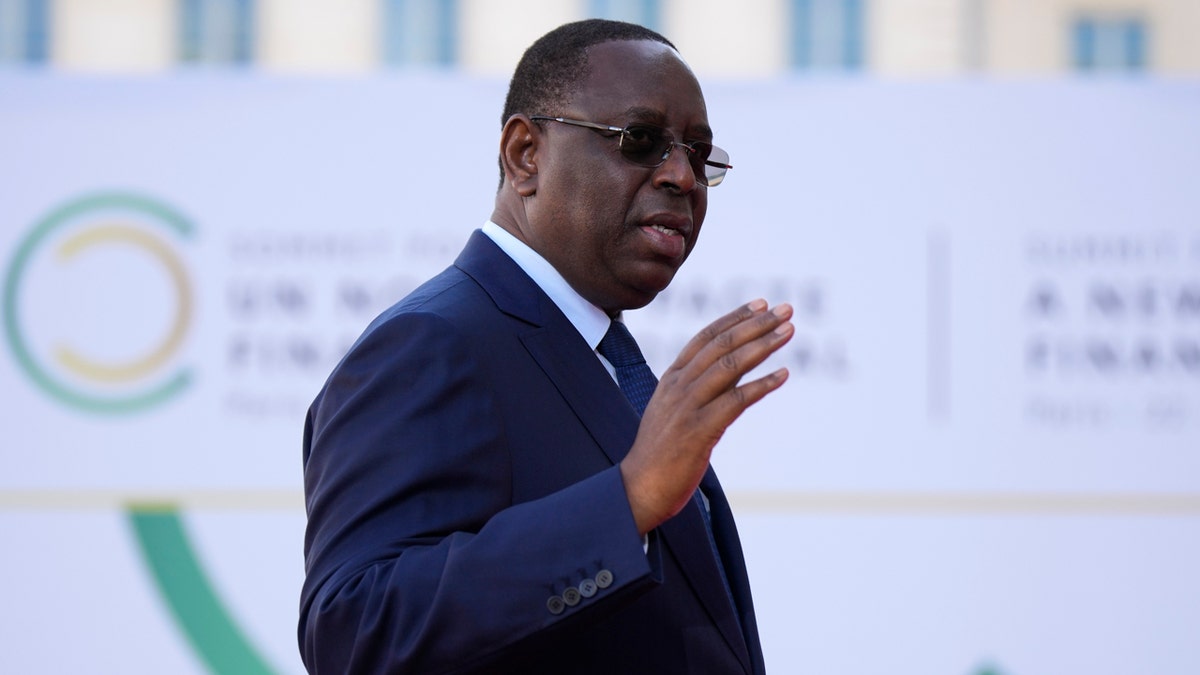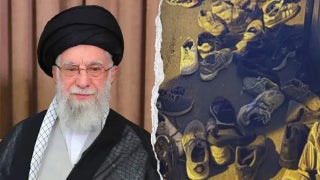Fox News Flash top headlines for July 3
Fox News Flash top headlines are here. Check out what's clicking on Foxnews.com.
- Senegalese President Macky Sall announced Monday that he will not seek a third term in office next year.
- Sall's uncertain political future helped fan the flames of deadly riots after leftist opposition leader Ousmane Sonko was criminally convicted, barring him from seeking the West African nation's highest office.
- "I had said that the 2019 mandate was my last mandate," Sall said Monday. "Senegal is more than just me, it’s full of people capable of taking Senegal to the next level."
Senegalese President Macky Sall declared Monday evening that he will not run for a third term in next year's elections, ending years of uncertainty over his political future that had helped fuel deadly opposition protests last month.
Top opposition leader Ousmane Sonko already had called for more demonstrations around the West African country in the event Sall had instead announced his intention to run again in February.
In a speech carried live on his official Facebook page, Sall maintained that Senegal's constitution would have allowed his candidacy despite having already been elected to a second term in 2019.
POLITICAL VIOLENCE ROCKS SENEGAL, THREATENS STABILITY, AS NATION CLOSES OVERSEAS CONSULATES
"Even if I have the right, I felt that my duty is not to contribute to destroying what I have built for this country," Sall said. "I had said that the 2019 mandate was my last mandate. I know that this decision will come as a surprise to all those who have a friendship with me. Senegal is more than just me, it’s full of people capable of taking Senegal to the next level."
Sonko had long called for the president to bow out of the 2024 election publicly, accusing Sall’s government of bringing court cases against the opposition leader in an effort to sideline the competition ahead of February's election.
There have been widespread fears that Sall’s declaration about his political future could spark new waves of unrest throughout the West African nation long viewed as a bastion of stability in an otherwise politically turbulent region.

Senegalese President Macky Sall on Monday announced that he will not seek re-election. (AP Photo/Lewis Joly, Pool, File)
Already, a wave of deadly protests erupted last month over a court case in which Sonko was sentenced to two years in prison after being convicted of corrupting youth. The government says at least 16 people died in the unrest, while the opposition has put the figure higher at 19.
Sall became Senegal's president in 2012 after prevailing against an incumbent president, Abdoulaye Wade, whose decision to seek a controversial third term prompted violent street demonstrations. Wade ultimately conceded defeat after a runoff between him and Sall, his former protégé.
SENEGAL VIOLENCE THREATENS COUNTRY'S STABILITY AS EXPERTS CALL ON GOVERNMENT TO INSTILL CALM
In 2016, Sall amended Senegal's Constitution to set a two-term presidential limit. His supporters maintained that his first term under the prior constitution shouldn’t count though. As recently as this past weekend, Sall was heard saying that the country's Constitutional Council would allow for his candidacy, fueling speculation he would announce his third term bid.
In his speech Monday, Sall asked the government to do everything possible to organize a transparent election in February. It was not immediately clear who might run on the ticket of Sall's political party.
A number of African presidents already have tried staying in power in recent years by modifying their constitutions first, including Ivory Coast’s Alassane Ouattara, who won a third term in 2020. Another, Alpha Conde of Guinea, won a third term that same year too but didn’t stay for long: A military coup removed him from power less than a year later.
Bolle Fall, who works as a guard in the Plateau district of Dakar near the presidency, said he was hoping Sall would win a third term.
CLICK HERE TO GET THE FOX NEWS APP
"What I want is to leave him be," Fall said, expressing concern about the recent opposition protests that shuttered local businesses for days at a time. Influencing youth to "attack people, break stores, keep people from working, it’s not good … we have to be civilized," he added.









































